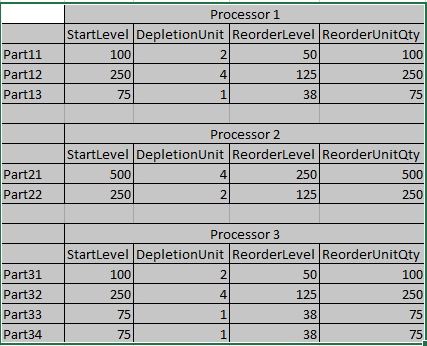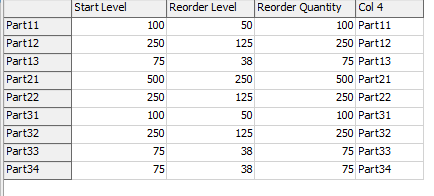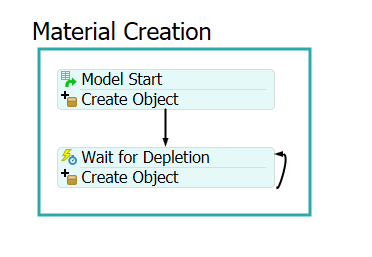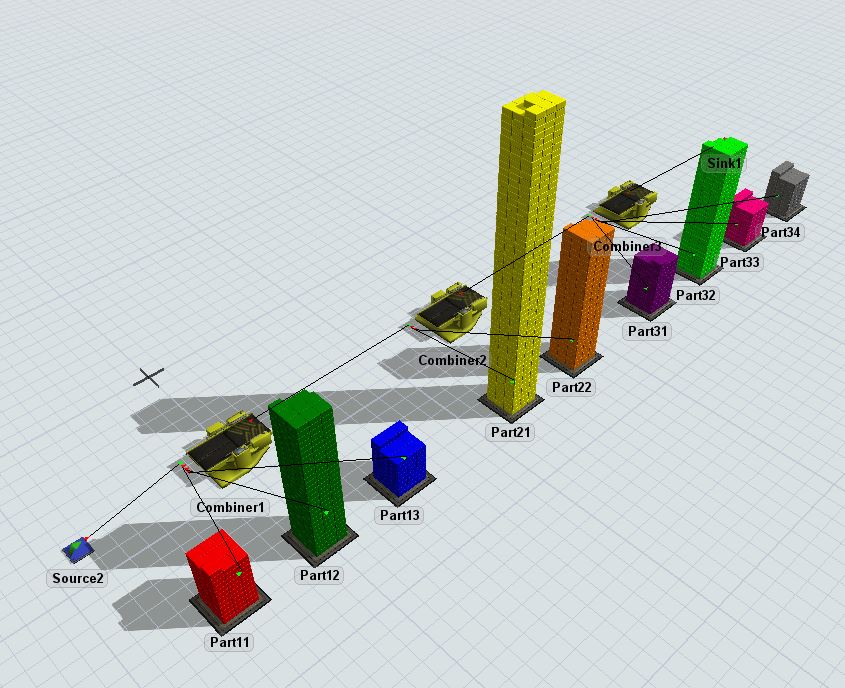I am trying to use Material Consumption and Replenishment module available in Fixed Resource PF for the following set up.
Each Processor has multiple parts consumption as explained below
For Processor 1 to complete the assembly, it consumes Part11-2parts, Part12-4parts, Part13-1part. In similar way for Processor 2 and Processor 3 as shown in the table.
But in Material Consumption and Replenishment Process Flow template for each processor there is only one 1 part consumption. So how to scale the below scenario to the available standard template. Please any feedback and suggestions helps me to achieve this.









